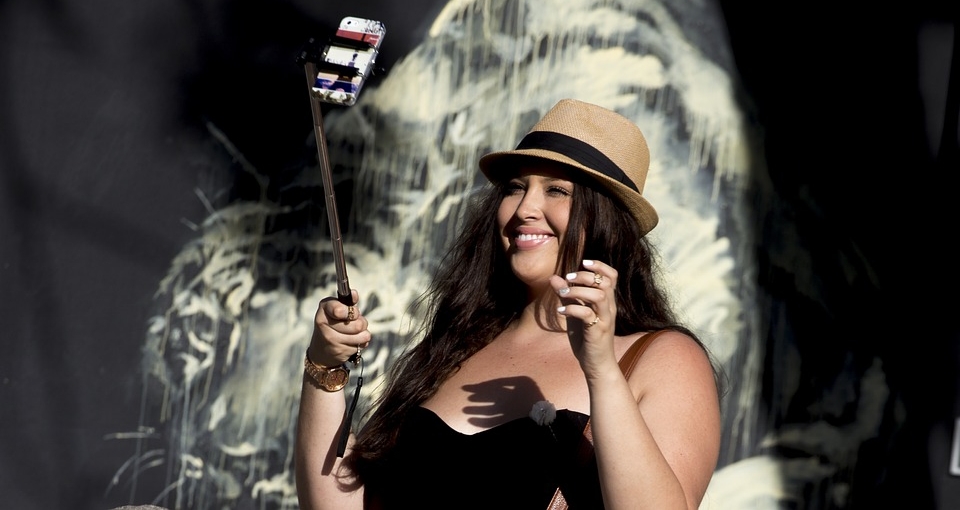How Social Media Can Boost Your Confidence
Instagram’s company motto is to “capture and share the world’s moments”—but only if these moments are airbrushed, filtered, and shot with the ideal selfie lighting. Whether it’s a celebrity's ultra-Photoshopped feed or your own careful edits, social media makes it easy to make your life (and your body) look way better on a screen.
8 out of 10 women encounter negative comments online.
Although it doesn’t take a genius to know this ridiculous model of perfection breeds problems, the numbers don’t lie, either. A 2015 Dove Social Media Study shows that 8 out of 10 women encounter negative comments online, and 82 percent believe that what’s being portrayed on social media is unrealistic.
Bottom line: It’s easy for social media to make us feel bad, but if there’s anyone who can change the attitude, it’s members of the community themselves. Grassroots movements are using hashtags like #BodyPosi, #DropthePlus, and #SpeakBeautiful to advocate celebrating what you have—not worrying over what you don’t.

While she was struggling to recover from anorexia, Megan Crabbe of @bodyposipanda found unlikely support from Instagram pages like @effyourbeautystandards. “Before that I had never truly considered self love as an option, and I realized then that I couldn't spend the rest of my life torturing myself over my weight.” Through her own feed, Megan says she’s been able to “spread a life-changing message right into people's pockets, and all they have to do is scroll.”
But scrolling can only make things worse if your feed exclusively contains model bikini selfies. “We've all been taught this mentality of comparison, especially when it comes to our looks, so when all we see around us are Photoshopped, unattainable 'ideal' bodies, our self esteem is doomed,” Megan explained.
And even crazier? Models aren’t spared from this pressure, either. British model Charli Howard spoke out against her agency last year when they told her she was “too big” (nevermind the fact that she’s 5’8” and wears a size 2 or 4).
In the open letter on (where else?) social media, she said “I will no longer allow you to dictate to me what's wrong with my looks and what I need to change in order to be "beautiful" (like losing one f** inch off my hips), in the hope it might force you to find me work.”
“We've all been taught this mentality of comparison, especially when it comes to our looks, so when all we see around us are Photoshopped, unattainable 'ideal' bodies, our self esteem is doomed."
Along with being a total badass role model, Charli took back the dialogue and is all the better for it. “I instead choose to focus on the nicer comments, and put the not-so-nice ones to the back of my mind,” she said. “Whenever I'm feeling down, I always remember how grateful I am to not be that sad person leaving mean comments on people's pictures in order to make myself feel better!”
Obsessing over someone else’s pictures won’t make you feel any better about your own. Social media has incredible power, and it’s up to us to harness it. “I also think that, despite what the majority of people think, platforms like Instagram can be used to empower girls and to spread positivity, and if you look for good things, you will find them on there,” Charli said.
Just take it from Chloe Lee, a 17-year-old from Chicago, who summed it up best. “We can't change or control people who post these Photoshopped photos, but we can change our attitude and response. Our generation often gets swayed by social media—maybe it's our job to change this?”
This article was originally published in Clover Letter, a daily newsletter.
Read next: The Big Lie Killing Your Confidence)
Shine is supported by members like you. When you buy through links on our site, we may earn an affiliate commission. See our affiliate disclosure for more info.

